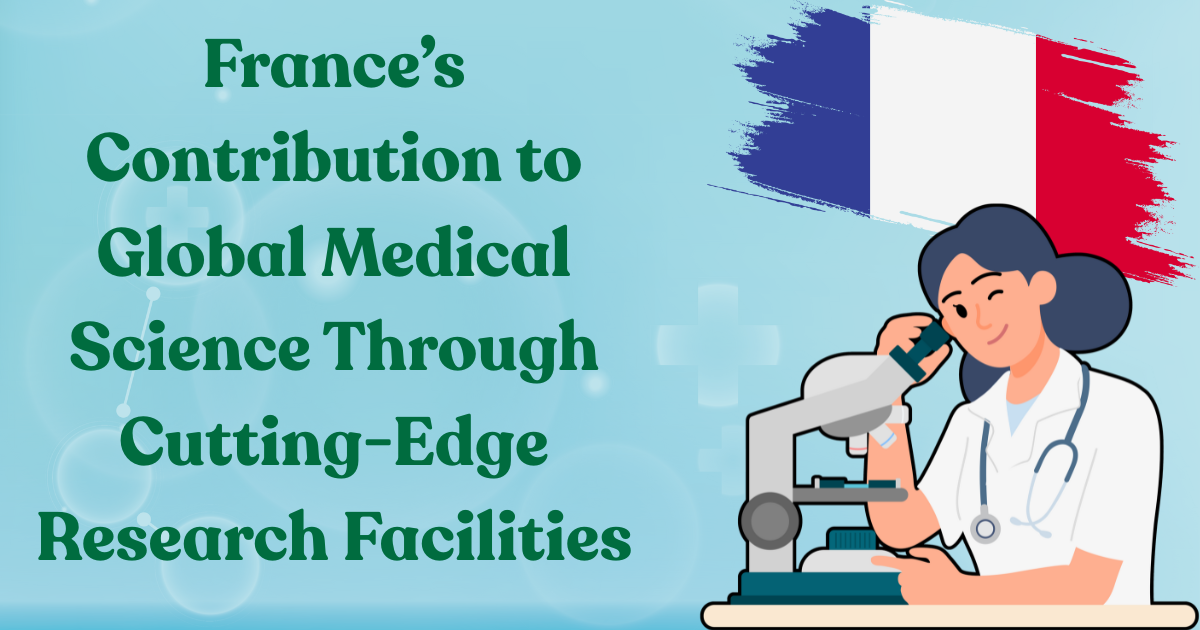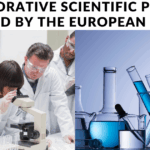France’s Contribution to Global Medical Science Through Cutting-Edge Research Facilities. France has enhanced its medical science research and is now well-known for its cutting-edge research facilities worldwide. The contribution by France in the Medical field has been supported by its public sector and strong export capability. To know more about the topic “France’s Contribution to Global Medical Science Through Cutting-Edge Research Facilities,” please read the complete article.
France’s Contribution to Global Medical Science Through Cutting-Edge Research Facilities
France is home to an exceptional health ecosystem that integrates advanced research and technological innovation. The health sector is a pillar of the French economy. In 2023, health-focused industries generated a turnover of 90 billion euros, 35% of which was built around exports. In financial sustainability, France ranked 30th, ahead of Japan and the United States. French lawmakers continue to struggle with developing strategies to manage the growing expenses of government healthcare without triggering significant public opposition.

Advances in healthcare are driven by original, innovative, high-quality biomedical research and rapid application to diagnostics, treatment, healthcare, and public health. In research terms in which researchers and physicians work side by side, they have brought it to the forefront of basic biomedical research. In 2023, France launched the French Global Health Strategy for 2023-2027, focusing on several key priorities, including improving healthcare systems and addressing disparities in access to care, which aligns with the WHO and France Framework Agreement 2020-2025.
“Healthtech companies in France contribute to our healthcare sovereignty and to the reindustrialization of the country,” said Roland Lescure, former minister for Industry and Energy.
France’s Contribution to Global Medical Science
World-Renowned Research Institutions
Institut Pasteur
Institut Pasteur is a private, non-profit foundation. Its mission is to assist in preventing and treating diseases, mainly those of infectious origin, through research, teaching, and public health initiatives. The Institut Pasteur operates in four main areas: scientific and medical research, public health monitoring, teaching, and technology transfer. With 134 research units gathered in 12 Scientific Departments and supported by 20 core technological facilities. The Institut Pasteur is focused on open, collaborative and innovative research.
Institut Curie
Institut Curie, a leading French cancer center, combines an internationally renowned research center and a state-of-the-art hospital treating all types of cancer, including the rarest types. The mission of the Institut Curie’s research is to understand the complex workings of living things. The fundamental research developed there makes it possible to implement sophisticated translational research, an incalculable source of innovation rising to the scientific, technological and medical challenges posed by cancer.
Inserm (French National Institute of Health and Medical Research)
Inserm (French National Institute of Health and Medical Research) is involved across the research pathway – from fundamental to clinical, public health, and technology research – in advancing knowledge of living beings and disease. Through these advances and their resulting innovations, Inserm contributes to improving human health. It was founded in 1964. the French National Institute of Health and Medical Research (Inserm) is a public scientific and technological institute that operates under the joint authority of the French Ministry of Health and the French Ministry of Research.
Revolutionary Discoveries
Marie Curie was a Polish-French physicist and chemist who conducted pioneering research on radioactivity. She was the first woman to win a Nobel prize for her work in chemistry and physics, and she was also the first person to win a Nobel prize twice. Marie and her husband revolutionized research on radioactivity and discovered two elements: polonium and radium. She also discovered that Radium can be used as a cancer treatment.
Louis Pasteur was a French chemist and microbiologist who was one of the most significant founders of medical microbiology. His contributions to science, technology, and medicine are nearly without precedent. He pioneered the study of molecular asymmetry; discovered that microorganisms cause fermentation and disease; originated the process of pasteurization; saved the beer and wine; and developed vaccines against anthrax and rabies.
Strong Government Support
Healthcare is a significant priority for France, reflected in substantial government investment in research and development through initiatives like the “Healthcare Innovation Plan 2030” with a budget of €7.5 billion. This funding supports biomedical research, technology development, clinical trials, and the growth of healthcare startups. The government’s main aim is to encourage and support projects that use new technologies that would eventually improve the quality of care for the benefit of patients.



